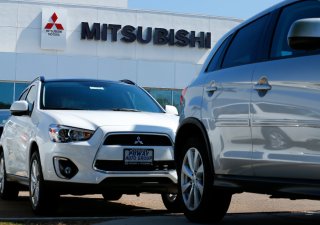Car Buyers Will Be a Casualty in the Fed’s War on Inflation
An even more pronounced effect will likely be felt in the red-hot used car market.
Higher interest rates may be the final blow for some budget-conscious car shoppers.
The Federal Reserve just went on the offensive in its fight against inflation by announcing a half-percentage-point interest rate hike.
Unfortunately, for Americans who are looking to buy a new or used vehicle, this means that financing the purchase of one is about to get more expensive.
“In the past, interest rate hikes didn’t affect the new car market significantly because automakers subsidize many loans,” Jessica Caldwell, executive director of insights for Edmunds, told CNBC.
“However, this is the biggest rate hike we’ve seen in over twenty years, so there may be a small impact, but it will likely only reinforce the new vehicle buyer base of higher income shoppers,” she continued.
However, Caldwell admitted that with higher rates going forward, that may be the final blow for some budget-conscious car shoppers.
“So, I’m asked to pay a higher price for a vehicle that is not really necessarily my perfect vehicle, higher interest rates, and now higher gas prices are making the market pretty unfriendly for a lot of consumers,” she told the Philadelphia Inquirer.
“So, I think people are just walking away, and they’re just saying, ‘I’m just going to wait; there’s just too many things against me,’” she added.
Caldwell noted that a more pronounced effect will likely be felt in the already red-hot used car market.
“Given used car prices are already at record highs, this increase will only make this market more expensive, and buyers will be forced to sit out due to affordability or buy an older vehicle to keep payments within a digestible range,” she explained.
For much of the pandemic, the auto industry has been struggling with limited inventory due to the ongoing computer chip shortage. This largely has been responsible for the nearly 13 percent rise in new car prices over the past year, according to the latest data from the U.S. Bureau of Labor Statistics. Edmunds.com numbers show that the average price of a new car for March was $45,120, or $677 over the average sticker price.
Meanwhile, the average price of used vehicles is more than $30,000, Edmunds says, which is up roughly 35 percent from a year ago.
There was, however, some good news that came out on Friday. Cox Automotive reported that its Manheim Used Vehicle Value Index—which tracks prices of used vehicles sold at its U.S. wholesale auctions—fell 1 percent in April from March. That marked the third consecutive month of declines, and prices have dropped more than 6 percent since the January record.
“We clearly have returned to vehicles depreciating again,” Jonathan Smoke, chief economist at Cox Automotive, told CNBC.
“That’s a good news story for both inflation and for consumers looking to buy a vehicle,” he concluded.
Ethen Kim Lieser is a Washington state-based Finance and Tech Editor who has held posts at Google, The Korea Herald, Lincoln Journal Star, AsianWeek, and Arirang TV. Follow or contact him on LinkedIn.
Image: Reuters.

